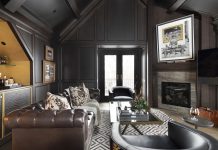Photos provided
 Dr. Artika Tyner was pondering how to make a real difference in the midst of the COVID-19 pandemic and in the aftermath of George Floyd’s murder when calls for an end to systemic racism took over the globe. As an author, educator, speaker, dynamic advocate and leader for social change, Civil Rights attorney, and Associate Vice President of Diversity & Inclusion at the University of St. Thomas, Dr. Tyner says she was wondering: “How do you create spaces for artists and writers to build and reimagine the world we all want to live in?”
Dr. Artika Tyner was pondering how to make a real difference in the midst of the COVID-19 pandemic and in the aftermath of George Floyd’s murder when calls for an end to systemic racism took over the globe. As an author, educator, speaker, dynamic advocate and leader for social change, Civil Rights attorney, and Associate Vice President of Diversity & Inclusion at the University of St. Thomas, Dr. Tyner says she was wondering: “How do you create spaces for artists and writers to build and reimagine the world we all want to live in?”
Dr. Tyner had a space available. She owns a house in the Ronda neighborhood of St. Paul (where she grew up) with an upstairs that was waiting for a purpose. Plus, she needed a place for the board of her nonprofit, Planting People Growing Justice Leadership Institute, to meet. She also wondered, “How do you make an office space available for others, so they can have [as Virginia Woolf put it] ‘a room of their own’ and invite people who would reflect what a racially just society would look like?”

She emailed LiLu Interiors in Minneapolis, asking if Lisa Peck, owner and principal designer, knew of anyone that could help. “I told her, ‘Oh, we can do that for you,’” Peck says. Since meeting at a Girl Scouts’ women’s leadership event, Dr. Tyner and Peck had become friends. “We have mutual respect and support for each other,” Dr. Tyner says.
“I had just stuck two chairs and sofa up there,” Dr. Tyner says. “Interior design is not my talent.” She asked Peck and interior designer LuAnne Silvia: “Can you make this space feel like Ghana?” (Dr. Tyner’s nonprofit is committed to supporting literacy and youth leadership development initiatives in Ghana. The country is also Dr. Tyner’s spiritual home.)
 “Artika has beautifully dyed fabric from Ghana,” Silvia says, “so that was our inspiration.” Dr. Tyner also sent the designers photos of places in Ghana that she loves, including spaces with white walls and dark wood. “Then, we started thinking about our generous and kind neighbors at IMS,” Silvia continues.
“Artika has beautifully dyed fabric from Ghana,” Silvia says, “so that was our inspiration.” Dr. Tyner also sent the designers photos of places in Ghana that she loves, including spaces with white walls and dark wood. “Then, we started thinking about our generous and kind neighbors at IMS,” Silvia continues.
They started with Charlie Flynn at Francis King Showroom, “because we knew he had an area with close-out furnishings.” Flynn ended up donating four matching chairs by CR Laine with a “pretty, dark-wood finish and fabric that resembles a rattan or bamboo pattern that feels warm and tropical,” Silvia says. Other showrooms followed suit (see below for a list of donations).
The designers also worked with Dr. Tyner on selecting vibrant colors, textures, and artwork for the space. “It all came together like magic,” Dr. Tyner says. She now calls the space AYA Place. AYA (pronounced as “eye–ah”) is part of adinkra—visual symbols linked to the (former) Gyaman kingdom and Ashanti culture. Aya translates as “fern,” and symbolizes endurance, resourcefulness, and defiance against oppression.

“During the social unrest last summer, we were moved to do something that would make a difference in our community,” Peck says. “LuAnne and I are both readers. We’ve always done pro bono work. We seek out opportunities to support diverse voices. It was the perfect moment to do Artika’s project.”
Moreover, Peck adds, “We focus on joy, positivity, and lifting others up in our work. That’s also part of Artika’s mission in life. We were excited to do something wonderful for her with her space.” Dr. Tyner adds, “Working with LiLu was beyond belief. LuAnne and Lisa started with an idea of Ghana and created a space that manifests that cultural experience. Now, there’s a new meeting space for artists and creatives to pause, reflect, and grow.”
Donations
- Nicole Alatar at Sherwin-Williams
- Five gallons of Emerald Designer Edition interior paint
- Charlie Flynn at Francis King Showroom
- Four Lounge chairs by CR Laine
- Brenda Scherping-Westphal at AJ Maison Showroom
- Area rug by Dash & Albert
- Brant McManigle at Southern Lights
- Bathroom light fixture by Quoizel
- Jeffrey Rogness at Contemporary Blind Design
- Installation of discounted wood blinds
- Hang It Inc.
- Provided discounted art framing















